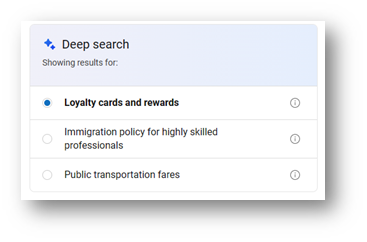
This site updated news on December 5. Today, Microsoft has brought a new feature to its own search engine - Bing Deep Search, which can provide "more relevant answers" to more complex questions.
Microsoft pointed out that when people face complex and delicate problems, it is often difficult to quickly find the answers they need. Although users themselves know what they are looking for, search engines cannot understand it.
According to reports, this new feature can provide more relevant and comprehensive answers to "the most complex searches." However, Microsoft's launch of Bing Deep Search is not to replace the existing basic search function, but to provide a deeper and richer web search option.

Deep Search is built on Bing’s existing web indexing and ranking system. GPT-4 is also used for reinforcement. After turning on the Deep Search function, it can expand the searched content into a description describing "what the ideal result should contain"
Of course, some users may not be able to give precise questions when querying. This can lead to ambiguous results. For this case, it uses GPT-4 to understand "all possible intentions" of the user and gives a comprehensive description for each intention.
Specific to the product, Deep Search offers an ambiguity option that displays everything a user might include in a query

After passing the user’s temperature, Bing will dig deep into various networks and extract relevant content that does not usually appear in ordinary search results. It is said that Deep Search will use a series of query technologies to find expanded content that may match user questions
Deep Search uses this function to draw inferences about other cases and find results in various directions that users want to query, even if The original keywords were not explicitly included in these results
Microsoft notes that Bing needs to consider millions of web pages for each search, while Deep Search has to consider ten times more results to find more results than a normal search. The result is a more specific or more comprehensive answer.
Deep Search first reviews the large collection of web pages it collects and then ranks them based on how well they match a comprehensive description.
Deep Search uses a variety of strategies when determining the relevance and quality of each result, considering factors such as match, detail, source credibility, freshness, and popularity
Obviously, Deep Search needs to search tens of millions of web pages to give an answer, so it requires a longer search time than ordinary search methods, and it may even take up to 30 seconds to complete.
Therefore, this site must remind everyone that Deep Search is not suitable for all users. It is more suitable for those who are used to asking questions in complex ways. Therefore, Deep Search is currently only an optional feature
Advertising statement: This article contains external jump links (including but not limited to hyperlinks, QR codes, passwords, etc.), which are intended to provide more information. Save time on selection, results are for reference only. Please note that all articles on this site contain this statement
The above is the detailed content of Microsoft tests Bing deep search: enhanced with GPT-4, slower than normal search. For more information, please follow other related articles on the PHP Chinese website!
 What directory search engines are there?
What directory search engines are there?
 Solution to failed connection between wsus and Microsoft server
Solution to failed connection between wsus and Microsoft server
 7 ways to write PLC programs
7 ways to write PLC programs
 How to modify coordinates in matlab
How to modify coordinates in matlab
 internal server error
internal server error
 What is the reason why the network cannot be connected?
What is the reason why the network cannot be connected?
 What is blockchain web3.0
What is blockchain web3.0
 What does Douyin sw prompt sound mean?
What does Douyin sw prompt sound mean?




